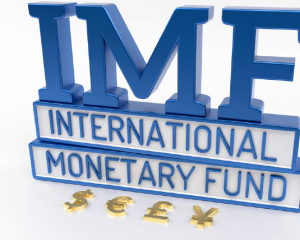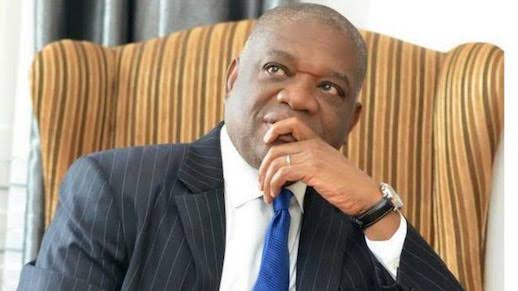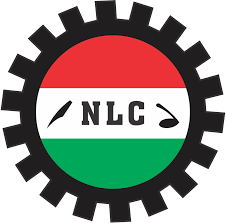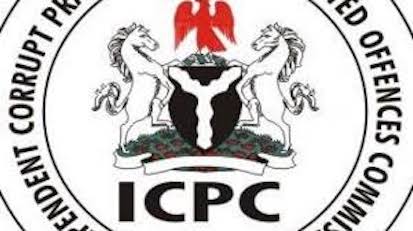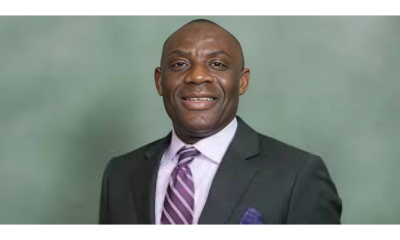Business News
IMF Approves $50m Disbursement for Liberia to Stem COVID-19
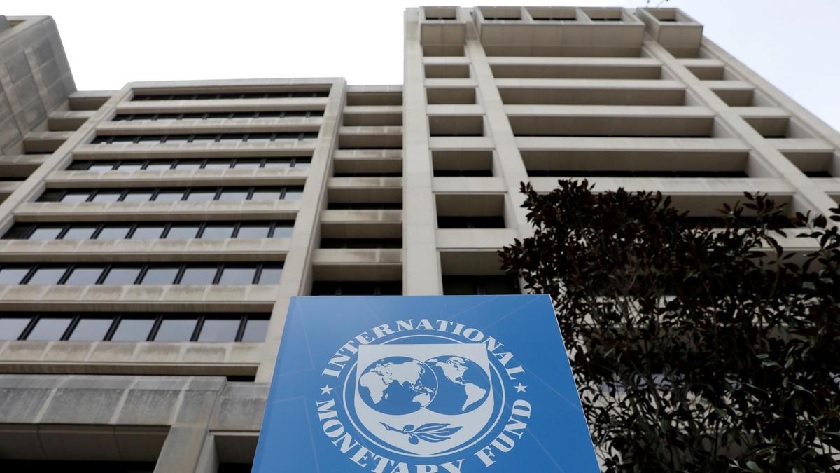
By Mathew Dadiya, Abuja
The Executive Board of the International Monetary Fund (IMF), has approved the disbursement of SDR36.17 million (US$50 million; 1.7 percent of GDP) to be drawn under the Rapid Credit Facility (RCF).
According to the IMF, the approval together with debt relief approved in April 13, will help meet Liberia’s urgent balance of payment needs, mostly stemming from fiscal needs necessary to respond to the pandemic.
The pandemic is hitting Liberia at a time, when economic activity was already declining.
The IMF approved the disbursement of US$50 million (1.7 percent of GDP) under the Rapid Credit Facility to support the authorities’ response to the COVID-19 pandemic.
The economic impact of the pandemic is hitting the poorest with little social safety net, and food security of those relying on uncertain daily income is a pressing concern.
The authorities have responded by taking revenue and expenditure measures to support emergency food aid for the poor; improving monitoring and control of spending; and safeguarding scarce foreign exchange reserves.
Real GDP growth for 2019 is estimated at -2.5 percent as private sector confidence remained weak, while inflation remains high. In addition, vulnerability to exogenous shocks remained high as both fiscal and external buffers were low. The full extent of the impact of COVID-19 is not known, but growth is now projected at -2.5 percent for 2020, largely due to lockdown at home and abroad which are negatively impacting domestic demand, net remittances, capital inflows, and the banking sector. In the absence of support, the poorest will feel the impact the most as there is little social safety net, and the food security of those relying on uncertain daily income is a pressing concern.
The pandemic opens a balance of payment need of US$150 million (5.1 percent of GDP) in 2020, which largely arises from a domestic revenue shortfall projected at US$119 million.
Preliminary data suggest that performance under the Extended Credit Facility (ECF)-supported program has been weak, though the authorities are fully committed to address the weaknesses.
Most of the end-December fiscal targets and structural benchmarks were met but the monetary program went off track by a large margin mainly for two reasons: an acute shortage of Liberian dollar banknotes at a period of high cash demand resulting in higher foreign exchange intervention than programmed; and acute shortages of U.S. dollar liquidity in the banking sector.
The authorities are addressing these weaknesses—aiming to bring the program back on track in time to complete the first review—but are faced with the challenging task of managing the COVID-19 crisis at the same time.
Following the Executive Board’s discussion of Liberia, Mr. Tao Zhang, Deputy Managing Director and Acting Chair, issued the following statement:
“The COVID-19 pandemic came at a time when a consensus on the need for broad-based reform in Liberia had finally emerged, but when macroeconomic conditions remained challenging.
The pandemic is expected to hit Liberia hard, and will likely disproportionately affect the most vulnerable as social safety nets are rudimentary, food insecurity is rising, and the healthcare system is underdeveloped.
“The authorities remain committed to protecting the most vulnerable amidst a significant revenue shortfall. The initial response to the pandemic, including the emergency food aid program, is welcome, but more remains to be done.
Specifically. the passage of the agreed FY2021 budget with high-quality revenue measures is key to addressing the COVID-19 crisis. It is also important to expeditiously finalize the comprehensive off-budget COVID-19 response plan with development partners. The authorities have taken measures to raise domestic revenue, including legislative approval of an excise tax on fuel and adoption of a resolution to channel all revenues acquired by two large state-owned entities to the government’s consolidated account.
They have also made significant improvements in the monitoring, control, and transparency of expenditure, including by tabulating and publishing detailed weekly reconciled spending reports, by requiring all budgetary entities to utilize the centralized financial management system, and by committing to the timely publication of an audit of crisis spending.
“To address the shortage of Liberian dollars and the growing need for more U.S. dollar liquidity, the authorities have contracted the printing of additional Liberian dollar bank notes and are formulating measures for inclusion in the FY2021 budget to augment US dollar liquidity.
“The authorities have also made steady progress in reaching benchmarks set under the Extended Credit Facility arrangement and remain committed to reforms under the arrangement to stabilize macroeconomic conditions and lay the foundation for inclusive and durable growth once the crisis subsides.’’
Business News
Tinubu Congratulates Dangote on World Bank Appointment

By Jennifer Enuma, Abuja
President Bola Tinubu has congratulated Alhaji Aliko Dangote, the President of Dangote Group, on his appointment to the World Bank’s Private Sector Investment Lab, a body tasked with promoting investment and job creation in emerging economies.
In a statement by Special Adviser on Media and Publicity, Bayo Onanauga, the President described the appointment as apt, given Dangote’s rich private sector experience, strategic investments, and many employment opportunities created through his Dangote Group.
The Dangote Group became one of Africa’s leading conglomerates through innovation and continuous investment.
Dangote Group’s business interests span cement, fertiliser, salt, sugar, oil, and gas. However, the $20 billion Dangote Petroleum Refinery and Petrochemicals remains Africa’s most daring project and most significant single private investment.
“President Tinubu urges Dangote to bring to bear on the World Bank appointment his transformative ideas and initiatives to impact the emerging markets across the world fully” the statement said.

The World Bank announced Dangote’s appointment on Wednesday, as part of a broader expansion of its Private Sector Investment Lab. The lab now enters a new phase aimed at scaling up solutions to attract private capital and create jobs in the developing world.
The CEO of Bayer AG, Bill Anderson, the Chair of Bharti Enterprises, Sunil Bharti Mittal, and the President and CEO of Hyatt Hotels Corporation, Mark Hoplamazian, are on the Private Sector Investment Lab with Dangote.
The World Bank said the expanded membership brings together business leaders with proven track records in generating employment in developing economies, supporting the Bank’s focus on job creation as a central pillar of global development.
Business Analysis
Nigeria Customs Generates over N1.75trn Revenue in 2025
By Joel Oladele, Abuja
The Nigeria Customs Service (NSC) has generated an impressive N1,751,502,252,298.05 in revenue during the first quarter of 2025.
The Comptroller-General (CG) of the Service, Bashir Adeniyi, disclosed this yesterday, during a press briefing in Abuja.
According to Adeniyi, the achievement not only surpasses the quarterly target but also marks a substantial increase compared to the same period last year, reflecting the effectiveness of recent reforms and the dedication of customs officers across the nation.
“This first quarter of 2025 has seen our officers working tirelessly at borders and ports across the nation.
I’m proud to report we’ve made real progress on multiple fronts—from increasing revenue collections to intercepting dangerous shipments,” Adeniyi stated.He attributed this success to the reforms initiated under President Bola Tinubu’s administration and the guidance of the Honourable Minister of Finance and Coordinating Minister of the Economy, Olawale Edun.
The CG noted that the revenue collection for Q1 2025 exceeded the quarterly benchmark of N1,645,000,000,000.00 by N106.5 billion, achieving 106.47% of the target. This performance represents a remarkable 29.96% increase compared to the N1,347,705,251,658.31 collected in Q1 2024.
Adeniyi highlighted the month-by-month growth, noting that January’s collection of N647,880,245,243.67 surpassed its target by 18.12%, while February and March also showed positive trends.
“I’m pleased to report the Service’s revenue collection for Q1 2025 totaled N1,751,502,252,298.05.
“Against our annual target of N6,580,000,000,000.00, the first quarter’s proportional benchmark stood at N1,645,000,000,000.00. I’m proud to announce we’ve exceeded this target by N106.5 billion, achieving 106.47% of our quarterly projection. This outstanding performance represents a substantial 29.96% increase compared to the same period in 2024, where we collected N1,347,705,251,658.31.
“Our month-by-month analysis reveals even more encouraging details of this growth trajectory,” Adeniyi said.
In addition to revenue collection, Adeniyi said the NCS maintained robust anti-smuggling operations, recording 298 seizures with a total Duty Paid Value (DPV) of ₦7,698,557,347.67.
He stated that rice was the most seized commodity, with 135,474 bags intercepted, followed by petroleum products and narcotics.
“From rice to wildlife, these seizures show our targeted approach,” Adeniyi remarked, noting the NCS’s commitment to combating smuggling and protecting national revenue.
Adeniyi also highlighted key initiatives, including the expansion of the B’Odogwu customs clearance platform and the launch of the Authorized Economic Operators Programme, which aims to streamline processes for compliant businesses. The NCS’s Corporate Social Responsibility Programme, “Customs Cares,” was also launched, focusing on education, health, and environmental sustainability.
Despite these achievements, the CG noted that the NCS faced challenges, including exchange rate volatility and non-compliance issues. Adeniyi acknowledged the need for ongoing adaptation and collaboration with stakeholders to address these challenges effectively.
Looking ahead, the NCS aims to continue its modernization efforts and enhance service delivery, ensuring that it remains a critical institution in Nigeria’s economic and security landscape.
“Results speak louder than plans; faster clearances through B’Odogwu, trusted traders in the AEO program, and measurable food price relief from our exemptions. We’ll keep scaling what works,” he concluded.
BUSINESS
NSIA Net Assets Hit N4.35trn in 2024
By Tony Obiechina Abuja
The Nigeria Sovereign Investment Authority (NSIA) yesterday disclosed that its net assets grew from N156bn in 2013 to N4.35 trillion in 2024.
Similarly, the Authority has remained profitable for 12 consecutive years, leading to cumulative retained earnings of N3.
74 trillion in 2024.Managing Director and Chief Executive Officer of NSIA, Aminu Umar- Sadiq made these disclosures at a media engagement in Abuja, highlighting its audited financial results for the 2024 fiscal year.
According to him, the results underscored the resilience of the authority’s investment strategy and the strength of its earnings, driven by a well-diversified revenue base and robust risk management practices, despite a challenging global macroeconomic and geopolitical environment.
Total operating profits, excluding share of profits from associates and Joint Venture (JV) entities, increased from N1.17 trillion in 2023 to N1.86 trillion in 2024, driven by the strong performance of
NSIA’s diversified investment portfolio, infrastructure assets, gains from foreign exchange movements, and derivative valuations.
In addition, Total Comprehensive Income (TCI), inclusive of share of profits from associates and JV entities, reached N1.89 trillion in 2024, reflecting a 59 per cent increase from N1.18 trillion in 2023.
Core TCI (excluding foreign exchange and derivative valuation gains) rose by 148 per cent to N407.9 billion in 2024 compared to N164.7 billion in 2023, supported by robust returns on financial assets measured at fair value through profit and loss, including collateralised securities, private equity, hedge funds, and Exchange-Traded Funds (ETFs).
Umar-Sadiq said the authority’s outstanding financial performance in 2024 reflected the “strength of our strategic vision, disciplined execution and unwavering commitment to sustainable socio-economic advancement.”
He said, “By leveraging innovation, strategic partnerships and sound risk management, we have not only delivered strong returns but also created value for our stakeholders
“As we move forward, we remain focused on driving economic transformation, expanding opportunities, scaling transformative impact and ensuring long-term prosperity for current and future generations of Nigerians.”
The CEO reaffirmed the authority’s commitment to managing the country’s SWF, and delivering the mandates enshrined in the NSIA Act.
He said NSIA remained poised to continually create long-term value for its stakeholders by delivering excellent risk-adjusted financial results, developing a healthy and well-diversified portfolio of assets and large-scale infrastructure projects, and enhancing the desired social outcomes.
He noted that NSIA was committed to its mandate of prudent management and investment of Nigeria’s sovereign wealth.
“In adherence to its Establishment Act, NSIA prioritises transparency, disclosure, and effective communication with all stakeholders and counterparties,” he said.
He pointed out that in the year under review, a new board, led by Olusegun Ogunsanya as Chairman, was appointed by President Bola Tinubu, in accordance with the provisions of the NSIA Act.
The new board will provide strategic direction and oversight, in addition to playing a pivotal role in critical decision making.
He remarked that under the guidance of the Board, the Authority will retain focus on its primary mandate of creating shared value for all stakeholders based on its continued adoption of corporate governance practices.
“NSIA prides itself an investment institution of the federation established to manage funds in excess of budgeted oil revenues and its mission is to play a pivotal role in driving sustained economic development for the benefit of all Nigerians through building a savings base for the Nigerian people, enhancing the development of the county’s infrastructure, and providing stabilisation support in times of economic misadventure,” he added.

